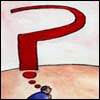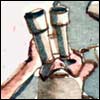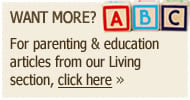“How can you talk about Harvard Law and G‑d in the same conversation?” It is a question that’s been thrown at me many times over the past twenty years. In terms of secular education, I’ve got a nice collection of advanced degrees in political science, law and public health, which—according to some—should have set me firmly on the path of reason and rationality instead of the path of faith. And yet, the more I live and learn, the more I realize how much we don’t know, how little we actually control, and how much the world looks purposeful instead of random.
“Today in Sunday school we learned about Genesis. I went home and ate ham and cheese sandwiches for lunch.”It is hard work to reconcile—in one’s own mind and heart—belief in an omnipotent Creator with all of the information one acquires from the secular fields of wisdom. It is even more challenging to communicate that fusion to others—friends, family, colleagues—to show people that one can be both a thinking person and a religious person. When I became a Torah-observant Jew, it was precisely the intellectual and scientific arguments that convinced me that this world was created by a Higher power. And I was not an easy sell, having been brought up in a secular family and school system without any religious structure.
I am a third- and fourth-generation American Jew. All of my grandparents or great-grandparents were born in the U.S., or moved there at a very young age. I had a Reform/Conservative Jewish education, which taught me a great deal about how to prepare for my bat mitzvah, such as how to chant the Torah and haftorah, and how to lead the service. On the other hand, there was no emphasis on the commandments, such as keeping kosher or Shabbat observance. I never heard of half of the holidays I celebrate today.
I recently found one of my middle-school journal entries...and I am not making this up: “Today in Sunday school we learned about Genesis. I went home and ate ham and cheese sandwiches for lunch.” This was not written with any irony; it was just matter-of-fact. There was no connection between what we learned in Sunday school and the details of Jewish law. We ate matzah for the Passover Seder, but then we ate all kinds of forbidden leavened products (except maybe pure bread) for the rest of the week. We fasted on Yom Kippur, but only until about 3:30, when everyone decided that was enough. I am not being judgmental or critical. I have nothing but good feelings and positive memories about all of my extended family and friends who grew up this way. This was just how we practiced Judaism. I personally prayed to G‑d a lot, mostly about my dream of becoming a famous movie star, but also the more traditional prayers for health and other good things.
I was definitely a seeker in college, and a person who exposed herself to as many ideas as possible. In addition to studying French, Chinese and political science, I would join friends for a Hindu meditation session, a born-again Christian church service or a Japanese tea ceremony. I attended Hillel services on the high holidays—Rosh Hashanah (one day) and Yom Kippur. My mother dragged me to an Aish HaTorah discovery seminar (which definitely started the ball rolling, when I think about it), and in law school, I went once or twice to Shabbat services with a friend. That was about it . . . until I moved to Hong Kong.
I would join friends for a Hindu meditation session, a born-again Christian church service or a Japanese tea ceremonyI received a scholarship to study and teach in Hong Kong in 1992. I thought I was going there to immerse myself in Chinese culture, but clearly G‑d had other plans for me.
I arrived in this foreign land a couple of days before Rosh Hashanah, and wanted to attend High Holiday services. A friend of mine told me there were Conservative services at the Hilton Hotel, so I got on the train early on the morning of Rosh Hashanah to be there at 9:00. When I arrived, the room was empty except for a rabbi dressed all in black. “Oh, boy,” I thought when I saw Rabbi Mordechai Avtzon walk in. I told him I was looking for the Conservative services, and he smiled and then replied without missing a beat, “Oh, we are very conservative here.” I figured I’d stick around, and soon enough the room was filled with very kind and interesting Jews from all over Asia. I was invited to stay for the forty-person Shabbat lunch that Goldie Avtzon would regularly prepare in her home. I guess it was the right combination of a special group of people and my own isolation from everything that gave me the motivation to start learning seriously about the details of Judaism.
I ended up staying for both days of Rosh Hashanah (who knew there were two?), and returning again for Yom Kippur. By the time Sukkot rolled around, the Avtzon kids (ages four, six and eight at the time) had taught me almost all of the necessary laws for observing Shabbat, things like not touching the light switches, how to wash my hands, etc. It was so interesting and also very natural for me. I felt like I had been waiting all of this time to discover the true nature of my own religion.
Having just graduated from law school, I asked a lot of questions of a practical nature, but also many hard philosophical questions, about suffering, evolution, astronomy, reincarnation, pollution . . . everything. Rabbi Avtzon and the myriad of interesting speakers who schlepped all the way to Hong Kong gave thorough and fascinating explanations for why intelligent, thinking people can, and should, believe in G‑d. I read Gerald Schroeder’s books along with mystical texts and chassidic stories, to give myself a fuller picture of Judaism. I questioned and challenged, but in the end I could not prove that the theory of evolution was inconsistent with the idea of creation, and I had enough faith to be comfortable with that uncertainty.
Needless to say, when I told my family and friends that I had become a religious Jew, they were a bit surprised and worried. Maybe if I had become a Buddhist while in Asia they would have understood, but an Orthodox Jew? Because, let’s face it, it’s an all-encompassing life change. One day you’re eating fried calamari, and the next day you’re dipping plates in a river to make them holy. Many feared that I had gone off the deep end, or even joined a cult, but I was happy with my new quest to learn everything I could about Judaism, and to live according to a legal system that is both traditional and incredibly flexible.
One day you’re eating fried calamari, and the next day you’re dipping plates in a river to make them holySoon after that life-changing year, I got married, and have since had six children (thank G‑d). I also obtained a master’s degree in public health, a purely secular scientific field. Most recently, I’ve been working in cancer research, with a focus on pancreatic cancer. My colleagues all know that I am observant, a scientist who believes in G‑d. And, despite what people might think, the details of science can often lead a person to see how wondrous and miraculous life is. Scientists see very clearly the limitations of their disciplines, including diseases which seem to elude any cure or prevention. Many religious physicians I have met have no problem believing in G‑d while taking seriously their role in healing. There is a natural order in the universe, and science and medicine can explain and fix many things, but not everything.
Even so, a person who talks a lot about G‑d might be thought of as a bit crazy, maybe even a fundamentalist. And in today’s world, religious fundamentalism can be scary. We have seen that it causes people to act contrary to all reason. There have been horrific crimes committed in the name of religion. But that doesn’t mean that all religious belief is antiquated and ridiculous, reserved for the “uneducated masses.” When the brilliant individuals who founded this country over 235 years ago wrote and spoke, they wrote and spoke about G‑d. They believed in G‑d, and they weren’t afraid to say it.
I think people today are somewhat reluctant to admit their faith outside of their church, synagogue or home. They are afraid that they will seem primitive or ignorant, so they downplay the role of faith in their lives. Even if the President of the United States says, “And may G‑d bless the United States of America,” people think he is just using a catchphrase, or trying to appeal to a certain group of voters. It takes a lot of faith to believe in G‑d when the world is so complicated, and sometimes seems so unfair. It takes a lot of conviction to face all of your colleagues on Friday afternoon and tell them that the reason you can’t help them with that document all night is because Moses brought down a commandment from Sinai that has been interpreted to mean that you can’t use a computer once the sun sets. (“Come on, are you serious?—Or do you just have something better to do this weekend?”)
But I’ve been at it for a while, and I find that most people do respect conviction, even if they don’t themselves believe. And I know that some people won’t ever understand, but I am prepared to accept the lifelong challenge of harmonizing all of the things I learn about the nature of the world with my fundamental belief in an all-powerful G‑d.






Loved your article My closest friend is Jewish (I'm Catholic) and studying now to be a rabbi. When we've traveled together, she's concerned if I can't find a Mass to attend on Sunday. We pray for each other regularly. Her folks survived Auschwitz and I am truly blessed to know her.